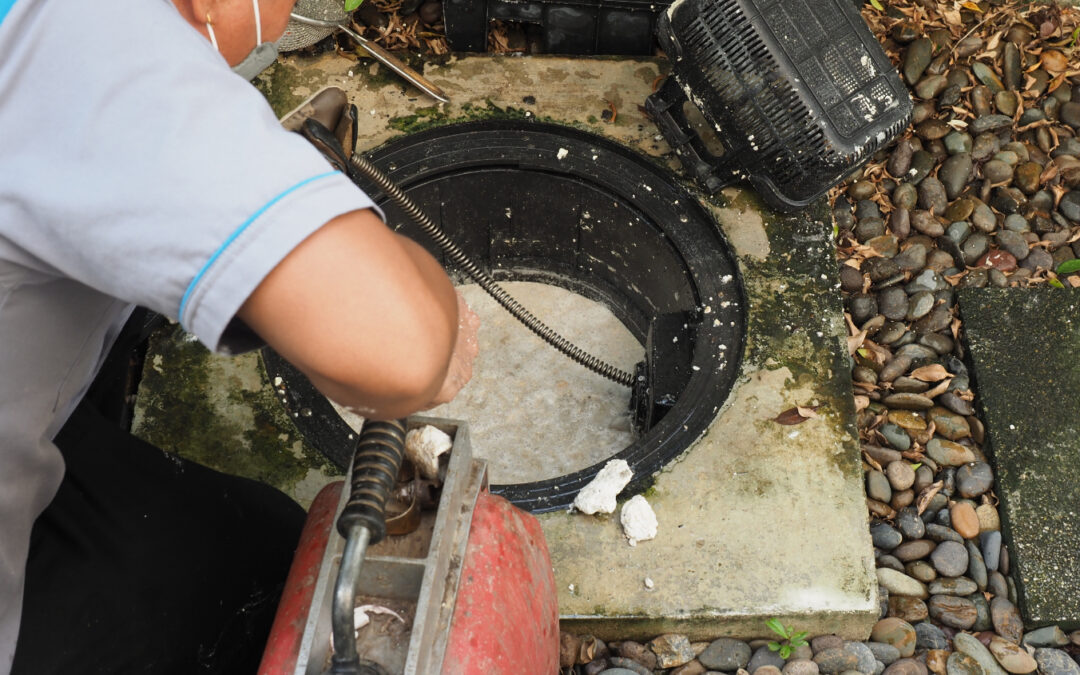Septic systems are a crucial part of many homes, especially those in rural areas. They manage and treat household wastewater, ensuring that it is safely processed and disposed of. Despite their importance, many of us do not fully understand how septic systems work or how to take care of them properly. Learning about septic systems can help us avoid potential problems and ensure our system works efficiently.
A well-maintained septic system provides several benefits, including cost savings and a healthier environment. It processes wastewater right on your property, which can be an advantage in areas without centralized sewage treatment facilities. Understanding the basics of how these systems function can help us appreciate their value and the importance of proper maintenance.
In this article, we will explore what septic systems are, how they work, the key benefits they offer, common problems that can arise, and simple maintenance tips. By understanding these aspects, we can better manage our septic systems and ensure they remain effective for years to come. This knowledge will not only help prevent costly issues but also contribute to a more sustainable way of managing household wastewater.
What Are Septic Systems and How Do They Work?
A septic system is an underground wastewater treatment structure commonly used in areas without centralized sewer systems. It treats household wastewater by separating solids from liquids and using natural processes to clean the water. The main components of a septic system are the septic tank and the drain field.
The septic tank is a watertight container made of concrete, fibreglass, or plastic. It holds wastewater long enough for solids to settle at the bottom, forming sludge, while oil and grease float to the top as scum. The tank has compartments and a T-shaped outlet to prevent sludge and scum from leaving the tank and travelling to the drain field.
The drain field, also known as the leach field, is where the liquid, called effluent, is discharged. The effluent flows through perforated pipes in the drain field and percolates into the soil. The soil naturally filters the effluent, removing harmful bacteria and nutrients before it reaches the groundwater.
Septic systems rely on a balance of physical and biological processes. Regular pumping of the septic tank is necessary to remove accumulated sludge and scum, ensuring the system continues to function effectively. Proper maintenance and care can extend the life of a septic system and prevent costly repairs.
Key Benefits of Having a Septic System
Septic systems offer numerous benefits to homeowners, especially in rural areas where centralized sewage treatment may not be available. Here are some key benefits:
1. Cost-Effective:
Installing and maintaining a septic system can be more cost-effective than connecting to a municipal sewer system. Once installed, the maintenance and pumping costs are relatively low, especially when compared to ongoing sewer fees.
2. Environmentally Friendly:
Septic systems treat wastewater on-site using natural processes, which can be more eco-friendly than sewage treatment plants. By filtering the water naturally through the soil, septic systems help replenish groundwater and reduce pollution.
3. Independence from Municipal Services:
With a septic system, homeowners are not dependent on municipal sewer services. This independence can be valuable in rural areas where sewer lines are not accessible. It also means fewer disruptions from city maintenance or service issues.
4. Long-Lasting:
When properly maintained, a septic system can last many years, even decades. Regular inspections and pumping ensure the system continues to operate efficiently and can prevent premature failures.
5. Promotes Water Conservation:
Because septic systems treat wastewater on-site, they encourage homeowners to be mindful of their water use. Reducing water consumption can lessen the load on the septic system and prolong its lifespan.
Septic systems provide an effective and sustainable solution for wastewater treatment. Understanding their benefits helps us appreciate the value they bring to our homes and the environment. Proper care and maintenance ensure that these systems continue to function efficiently for many years.
Common Problems with Septic Systems and How to Avoid Them
Septic systems are generally reliable, but they can encounter problems if not properly maintained. Knowing these issues can help us prevent them.
1. Clogs and Blockages:
Too much solid waste entering the septic system can cause clogs and blockages in the pipes or tank. This often leads to slow drainage or sewage backups.
Prevention:
Dispose of waste properly and avoid flushing items like paper towels, sanitary products, or grease down the drain. Regularly clean household drains and septic tanks to prevent build-up.
2. Tank Overflow:
If the septic tank is not pumped regularly, it can overflow, causing sewage to back up into the house or leak into the yard. This creates a health hazard and requires immediate attention.
Prevention:
Stick to a regular pumping schedule to keep the tank from reaching full capacity. Most tanks need pumping every 3 to 5 years, but this may vary based on usage.
3. Drain Field Failures:
The drain field can become saturated if the system is overloaded with wastewater or if the soil becomes compacted. This prevents the proper absorption and filtration of the effluent, leading to surface water and bad smells.
Prevention:
Ensure the drain field is protected from heavy machinery and excessive foot traffic. Avoid planting trees or shrubs with deep roots near the drain field that could damage the pipes.
By understanding and preventing these common problems, we can keep our septic systems functioning efficiently and extend their lifespan.
Simple Maintenance Tips to Keep Your Septic System Running Smoothly
Regular maintenance can prevent most issues with septic systems and keep them running smoothly for years. Here are some easy tips to follow:
1. Pump Regularly:
Have the septic tank pumped every 3 to 5 years, depending on the size of the tank and household usage. Regular pumping helps remove solids that can clog the system.
2. Use Water Wisely:
Conserving water reduces the load on the septic system. Fix any leaks, use high-efficiency fixtures, and spread out laundry loads to avoid overwhelming the system.
3. Avoid Harsh Chemicals:
Harsh chemicals can kill the beneficial bacteria in the septic tank that help break down waste. Use septic-safe cleaning products and avoid pouring chemicals or solvents down the drain.
4. Inspect Frequently:
Regularly inspect the septic system for signs of problems, such as slow drains, sewage backups, or foul odours. Early detection can prevent minor issues from becoming major repairs.
5. Protect the Drain Field:
Keep the drain field area clear of heavy items and vehicles. Plant only grass or shallow-rooted plants over the drain field to prevent root damage.
6. Proper Waste Disposal:
Dispose of non-biodegradable items like diapers, wipes, and sanitary products in the trash, not the toilet. These items can cause blockages and damage the septic system.
By following these maintenance tips, we can ensure our septic systems remain effective and trouble-free, saving us time and money on repairs.
Conclusion
Understanding and maintaining septic systems is crucial for their effective functioning. By knowing how these systems work and the benefits they provide, we can fully appreciate their role in managing household wastewater. Awareness of common problems and proactive maintenance can prevent serious issues, ensuring our septic system runs smoothly for years.
Proper care includes regular pumping, mindful water usage, avoiding harsh chemicals, and protecting the drain field. These steps, combined with regular inspections, help keep the system in top shape and extend its lifespan.
If you need expert assistance with your septic system, Pipes Plumbing offers professional services tailored to your needs. Contact us today to ensure your septic system is well-maintained and functioning efficiently.

